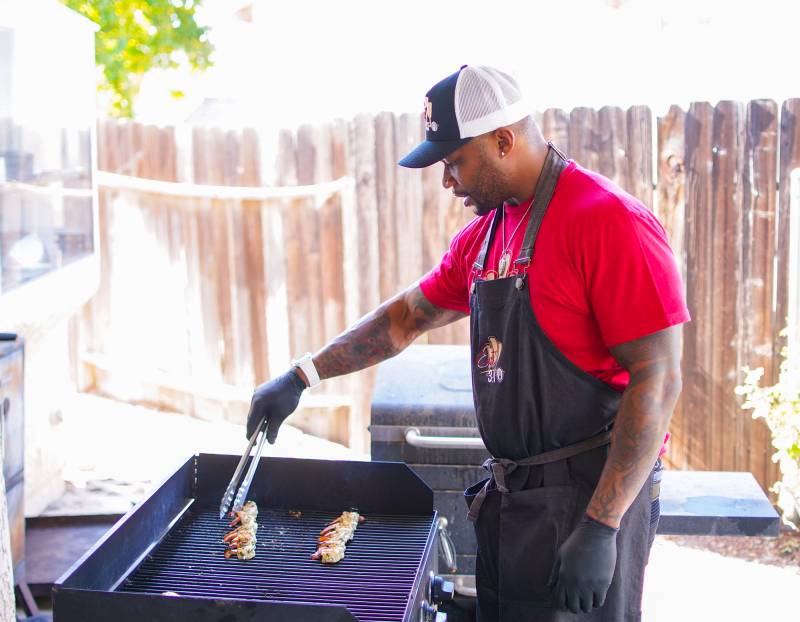Zigas thinks the infusion of venture capital will push these companies to try to exploit home cooks instead of working with them to create sustainable, independent businesses.
“When you get venture-backed money, where return is the goal and particularly massive return, no matter how genuinely interested you are principally, the service you are offering is going to be weakened as a result,” Zigas said.
Even though La Cocina has a long track record of helping women and people of color start businesses, Zigas says they’ve never received anything remotely close to the influx of cash just handed to Shef. That kind of funding, he says, would be enough to run La Cocina for 10 years.
Under the Table
Then there is the question of whether these food platforms are breaking the law.
Shef is operating in the Bay Area, and DishDivvy is operating in Los Angeles. Neither area has local regulations that allow chefs to cook and sell hot meals from their home. Cooks can only sell certain goods like jams and candies that were legalized under the California Homemade Food Act, which came into effect in 2013.
Chefs can make hot meals in commercial kitchens. On its website, DishDivvy says it performs a kitchen inspection for everyone on the platform. A spokesperson for Shef says its cooks should be using commercial kitchens, but it doesn’t require proof for them to be on the website.
Given how expensive and scarce commercial kitchens are in the Bay Area, Zigas says he is doubtful that every cook on the Shef site is actually using one. The branding of both Shef and DishDivvy suggests that the food comes from a chef’s home, not from an industrial kitchen. The food is advertised as “home-cooked,” not “commercial kitchen-cooked.”
Critics like Oatfield see this move to operate in places without local regulations as another page taken from the venture-capital playbook, and one that was very successful for Lyft and Uber. “That’s the typical Silicon Valley approach to business,” she says. “You don’t wait for something to become legal.”
As with Uber and Lyft, there is a layer of protection when it comes to liability. And like drivers for Uber and Lyft, Shef and DishDivvy do not consider those on the site to be employees. They may be facilitating something on their websites that might be illegal, but they have a degree of separation from the chefs on its “platform.” If health inspectors want to crack down, they will be going after small, independent cooks, a group that’s largely women and people of color.
Cooking Clean
The founder of a third home-cooking platform, called Foodnome, says he’s trying to do things differently than competitors like Shef and DishDivvy.
“We set about to do this in the right way, in the legal way,” Akshay Prabhu, the company’s CEO, said. “We value putting the cooks first.”
Foodnome only operates in Riverside County, for now, where home-cooked food is legal. It also does not partner with third-party delivery apps like Doordash and Uber Eats.

